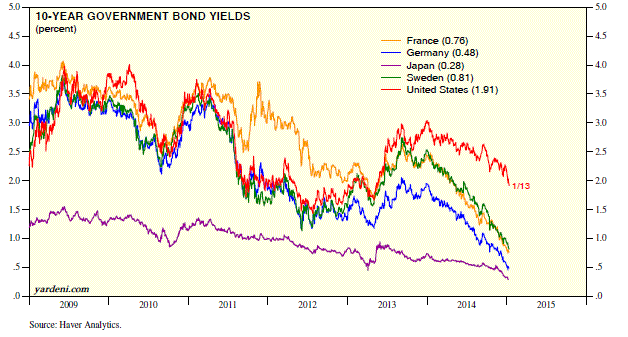
You can invest your money in government bonds. They promise guaranteed returns. Government bonds are not as risky as stocks or other securities. You can purchase government bonds on the RBI Retail Direct platform, or in the secondary marketplace (NSEgoBID). However, the RBI Retail Direct platform does not allow trading in secondary market bonds.
GILT mutual fund
The term gilt refers to government bonds. A gilt fund is one which invests at most 80% of its assets into government bonds. National bonds used to be issued as golden-edged certificates in the past. A gilt fund must ensure that it invests at least 80% in government securities over a period of at least 10 years. This type of fund has higher yields than other types of funds, but it does carry some risk. If you're looking for security and moderate returns, the GILT funds can be a good choice. These funds also have better asset quality that other funds. These funds are effective in falling markets but are subject to volatility in interest rates.
The key benefit of investing in gilt funds, is their low cost. They are a relatively low cost alternative to buying individual bonds from the secondary market, and have low management fees. The GILT mutual funds provide diversification, which reduces volatility. Gilt funds' expenses can vary from one fund to the next. The expense ratio is also important in choosing the right fund.
Discount purchase
Government bonds can be purchased at a discount. This allows the investor to buy securities at less than face value. These bonds are often offered at auctions several times per year. These auctions are open to both competitive and non-competitive investors. A competitive bid allows an investor to indicate the discount rate, margin, or yield that they would prefer. Investors can follow upcoming auctions online.

Discount bonds are often sold before their maturity date, which means that the underlying company is likely to default. These securities are then sold on the secondary market for a lower price than their face value. However, discount bonds carry higher risk than other types of bonds, since they are often issued only after other methods of raising capital have failed. Bond rating agencies may downgrade the credit rating of the issuer if the underlying company defaults on the repayments.
Par receipt
There are many benefits to investing in government bonds. Par receipts can be issued to investors when they invest in government bond. A Par receipt is a document the brokerage company issues you after you have purchased a bond. This receipt contains information about the securities purchased. A $50 Par receipt will be sent every six months to anyone who has invested in a twenty year bond with a coupon of 10%.
Par receipts are helpful in calculating the yield of government bonds. This is because government bonds cannot be purchased at full price. You can invest in government bonds and you will be risk-free. The Treasury Department pays interest every six-months on the bonds that you purchase and then reclaims them at par at maturity.
Inflation index bonds
You might consider inflation-index bonds when investing in government bonds. TIPS is Treasury Inflation Protected Securities. These bonds are worth more when the Consumer Price Index rises. These bonds are subject to federal taxes, however the increases in their principal values are exempted form state and county taxes.
Inflation index bonds, which are government bonds, have their principal changing according to inflation. Simply multiply the face value by the indexation coefficient to calculate the inflation-indexed principal amount. The indexation coefficient is an indicator of how much the bond's price fluctuates from the time it is issued to its maturity. The indexation ratio is calculated using the Ref index as of the day of issuance, and then dividing it with the 10th date of the issue period.

ETFs of Bonds
Bond ETFs invest in government bonds, but their advantages aren't limited to that. They can be an easy way to invest without the hassle of researching each bond. These types of funds are often small in size, which makes them appealing to novice investors.
Some of today's best bond ETFs offer great returns despite rising inflation and rates. TIPS, ultra-short and short-term bonds have been extremely profitable in these difficult times. Meanwhile, inflation has moderated in the United States, with the most recent consumer price index showing moderate growth.
FAQ
Why are marketable securities important?
An investment company's primary purpose is to earn income from investments. This is done by investing in different types of financial instruments, such as bonds and stocks. These securities are attractive to investors because of their unique characteristics. They are considered safe because they are backed 100% by the issuer's faith and credit, they pay dividends or interest, offer growth potential, or they have tax advantages.
A security's "marketability" is its most important attribute. This is the ease at which the security can traded on the stock trade. Securities that are not marketable cannot be bought and sold freely but must be acquired through a broker who charges a commission for doing so.
Marketable securities are government and corporate bonds, preferred stock, common stocks and convertible debentures.
Investment companies invest in these securities because they believe they will generate higher profits than if they invested in more risky securities like equities (shares).
What is the difference between a broker and a financial advisor?
Brokers specialize in helping people and businesses sell and buy stocks and other securities. They handle all paperwork.
Financial advisors are specialists in personal finance. Financial advisors use their knowledge to help clients plan and prepare for financial emergencies and reach their financial goals.
Financial advisors may be employed by banks, insurance companies, or other institutions. You can also find them working independently as professionals who charge a fee.
Take classes in accounting, marketing, and finance if you're looking to get a job in the financial industry. Also, it is important to understand about the different types available in investment.
Can bonds be traded
Yes they are. Bonds are traded on exchanges just as shares are. They have been trading on exchanges for years.
The main difference between them is that you cannot buy a bond directly from an issuer. They must be purchased through a broker.
Because there are less intermediaries, buying bonds is easier. This means you need to find someone willing and able to buy your bonds.
There are many kinds of bonds. Some pay interest at regular intervals while others do not.
Some pay quarterly, while others pay interest each year. These differences make it possible to compare bonds.
Bonds are great for investing. If you put PS10,000 into a savings account, you'd earn 0.75% per year. If you were to invest the same amount in a 10-year Government Bond, you would get 12.5% interest every year.
If you were to put all of these investments into a portfolio, then the total return over ten years would be higher using the bond investment.
How are Share Prices Set?
Investors decide the share price. They are looking to return their investment. They want to make money from the company. So they purchase shares at a set price. The investor will make more profit if shares go up. If the share price falls, then the investor loses money.
Investors are motivated to make as much as possible. This is why they invest into companies. It helps them to earn lots of money.
Statistics
- Individuals with very limited financial experience are either terrified by horror stories of average investors losing 50% of their portfolio value or are beguiled by "hot tips" that bear the promise of huge rewards but seldom pay off. (investopedia.com)
- "If all of your money's in one stock, you could potentially lose 50% of it overnight," Moore says. (nerdwallet.com)
- Ratchet down that 10% if you don't yet have a healthy emergency fund and 10% to 15% of your income funneled into a retirement savings account. (nerdwallet.com)
- For instance, an individual or entity that owns 100,000 shares of a company with one million outstanding shares would have a 10% ownership stake. (investopedia.com)
External Links
How To
How to make your trading plan
A trading plan helps you manage your money effectively. This allows you to see how much money you have and what your goals might be.
Before you begin a trading account, you need to think about your goals. You might want to save money, earn income, or spend less. You might want to invest your money in shares and bonds if it's saving you money. You could save some interest or purchase a home if you are earning it. You might also want to save money by going on vacation or buying yourself something nice.
Once you have an idea of your goals for your money, you can calculate how much money you will need to get there. This depends on where you live and whether you have any debts or loans. Also, consider how much money you make each month (or week). Income is the sum of all your earnings after taxes.
Next, you need to make sure that you have enough money to cover your expenses. These include bills, rent, food, travel costs, and anything else you need to pay. All these things add up to your total monthly expenditure.
Finally, you'll need to figure out how much you have left over at the end of the month. This is your net income.
You now have all the information you need to make the most of your money.
To get started with a basic trading strategy, you can download one from the Internet. Ask someone with experience in investing for help.
Here's an example of a simple Excel spreadsheet that you can open in Microsoft Excel.
This is a summary of all your income so far. It also includes your current bank balance as well as your investment portfolio.
Another example. A financial planner has designed this one.
It will help you calculate how much risk you can afford.
Do not try to predict the future. Instead, you should be focusing on how to use your money today.